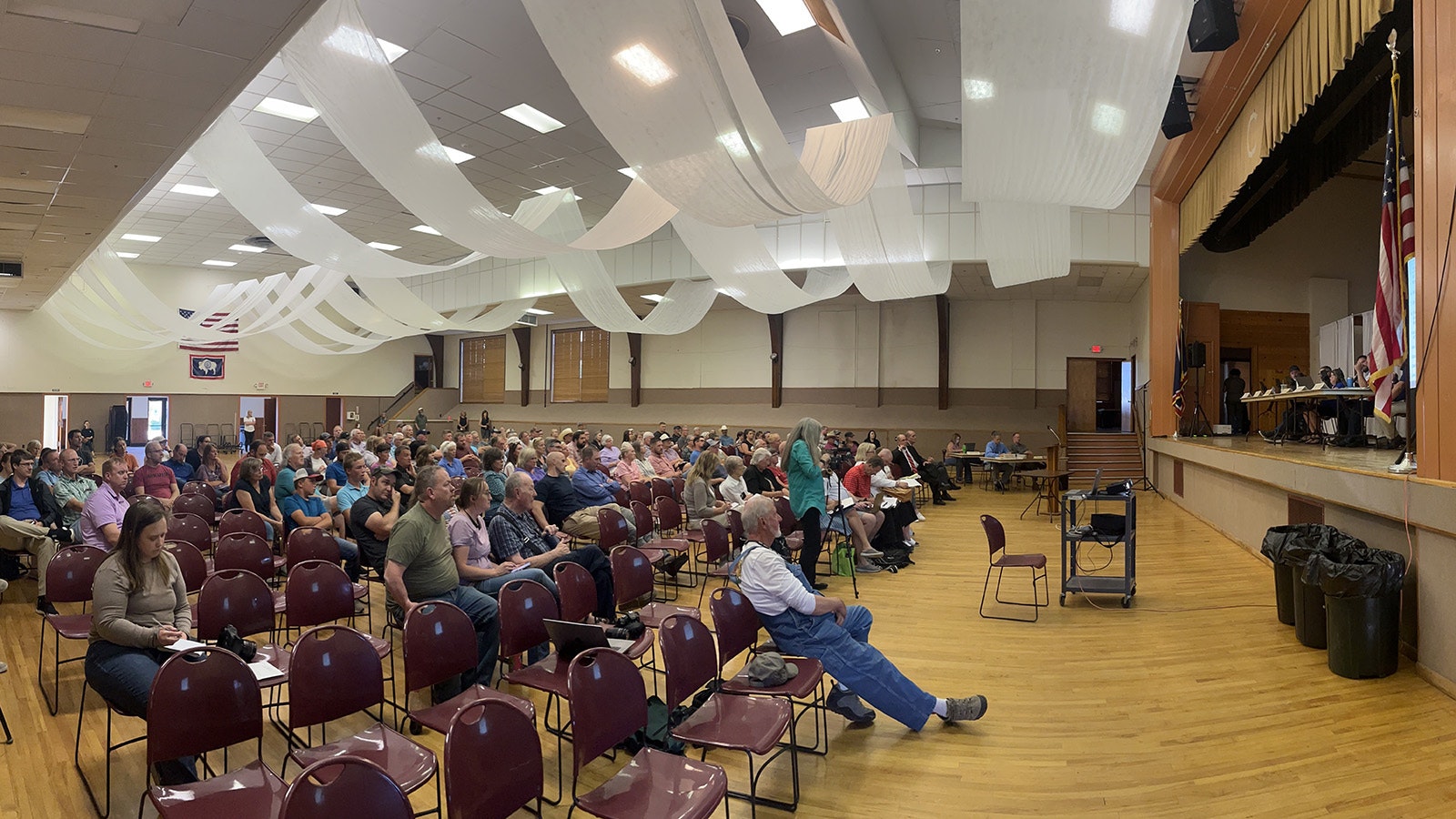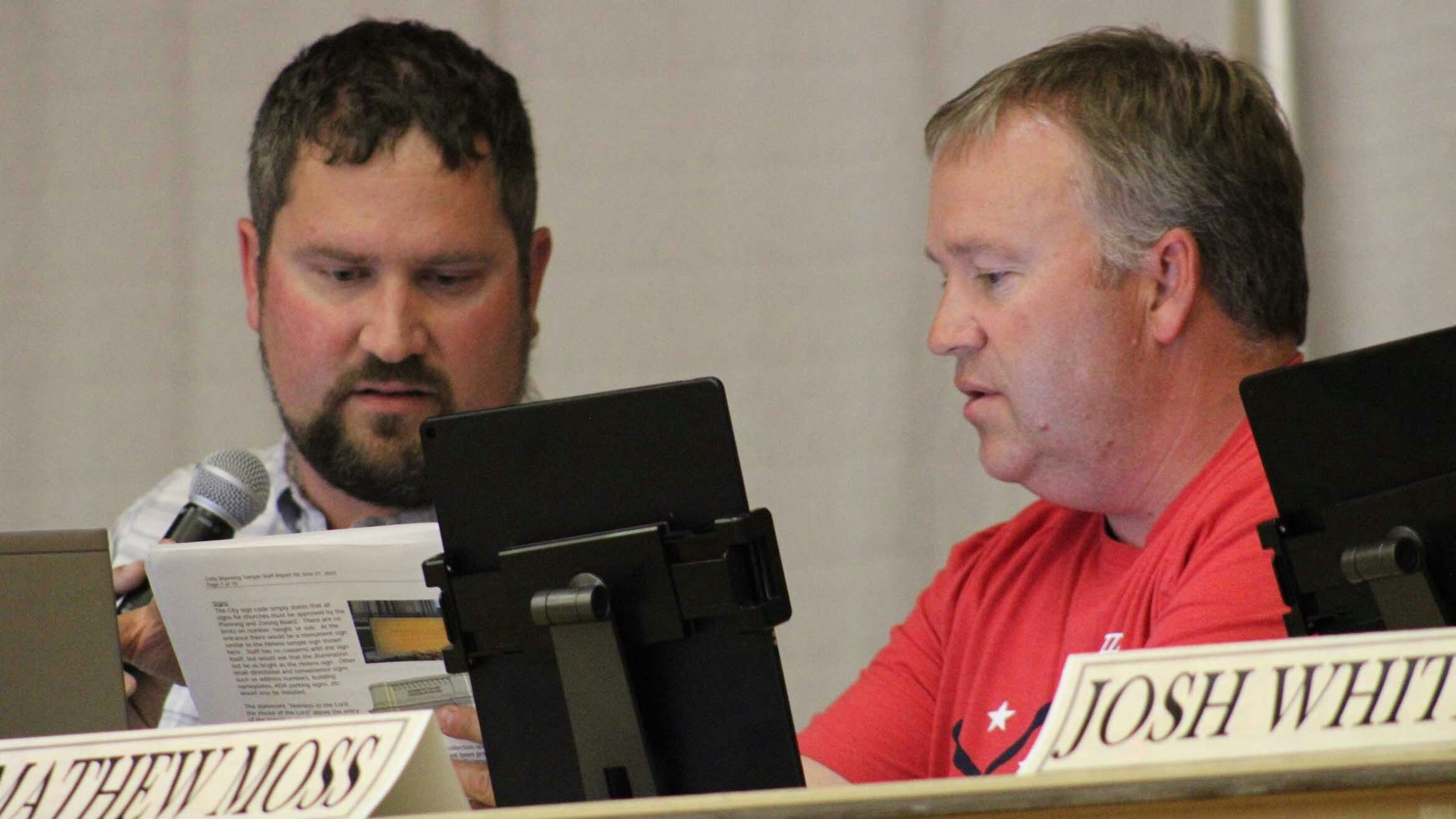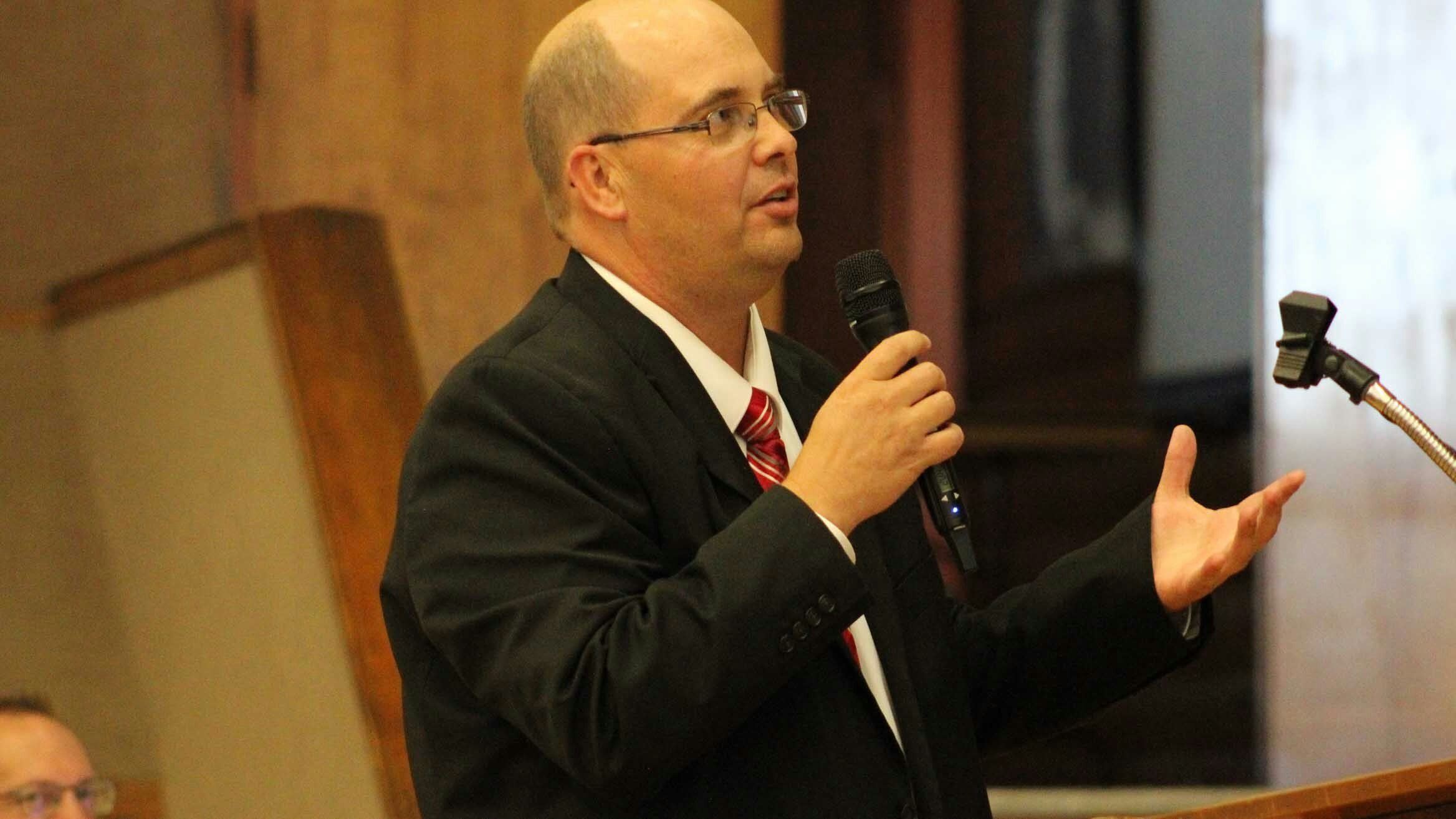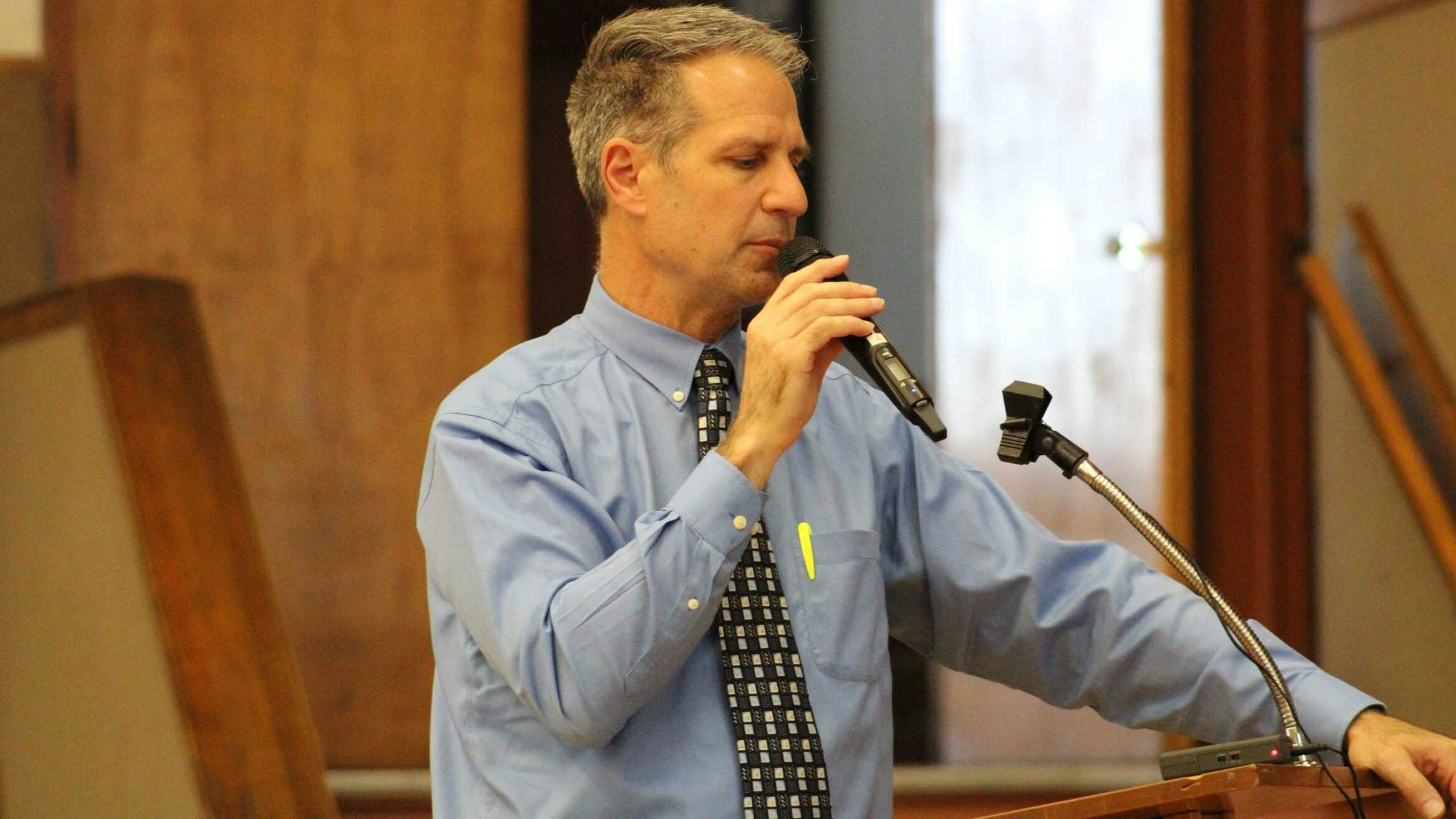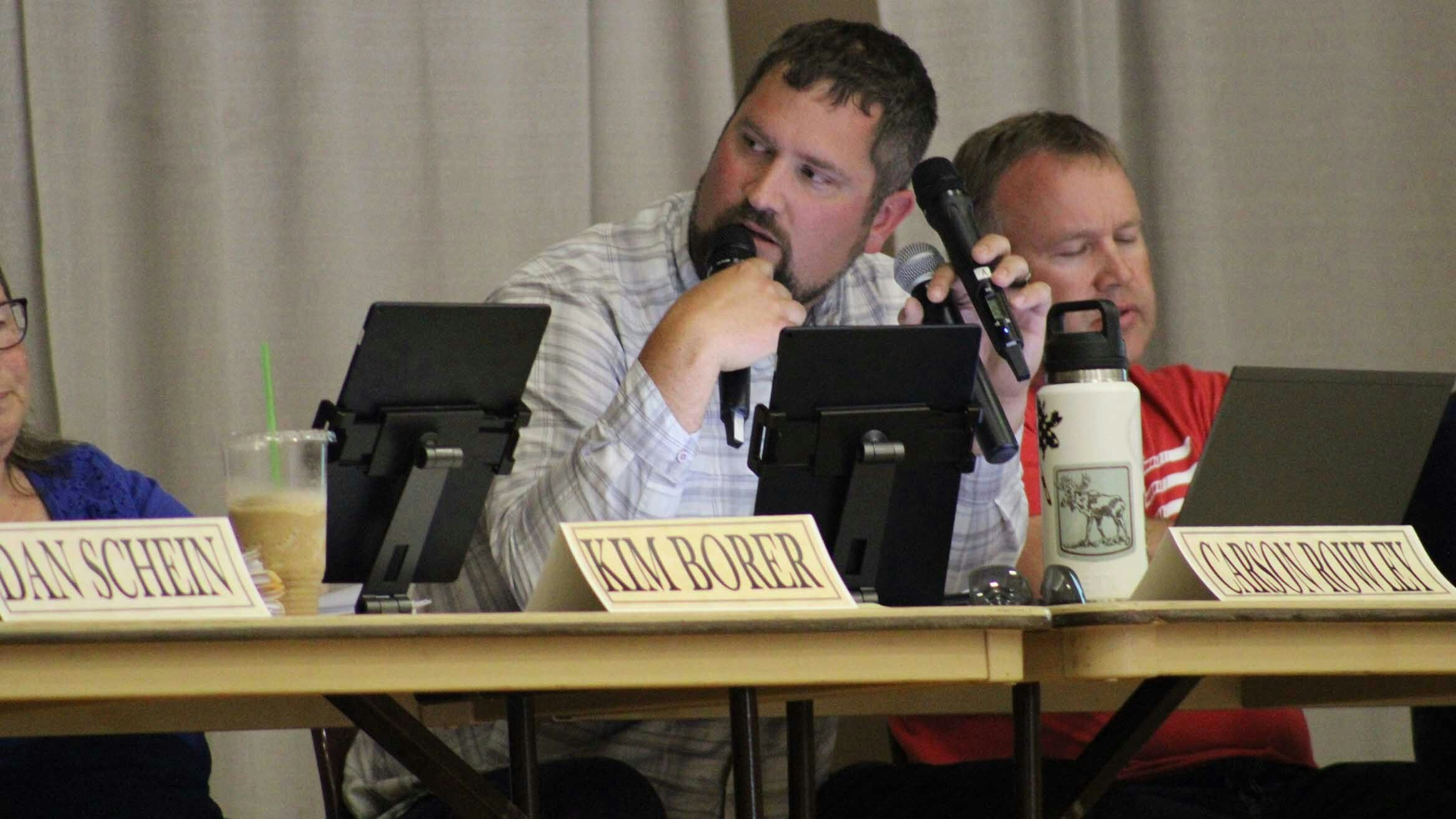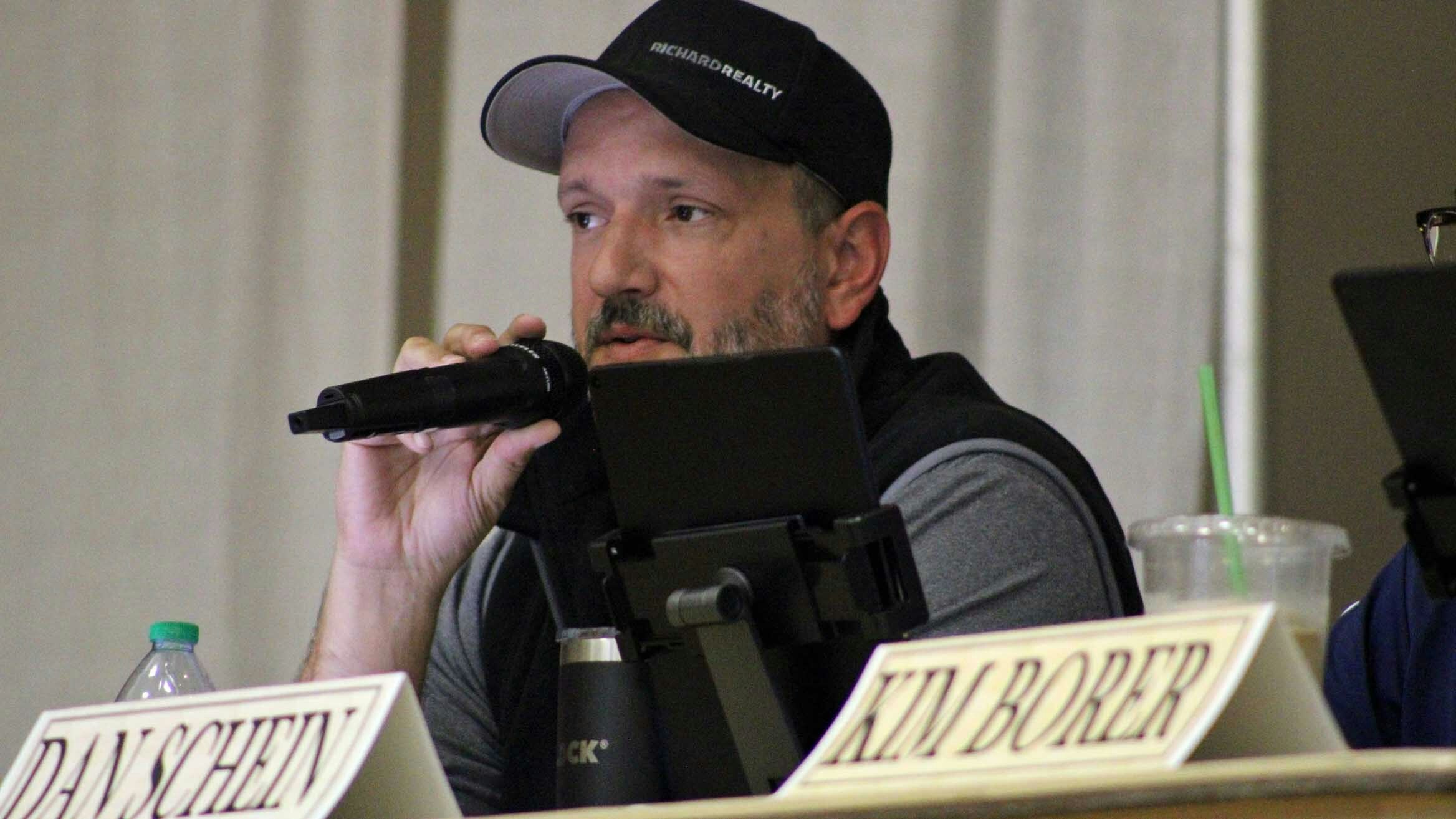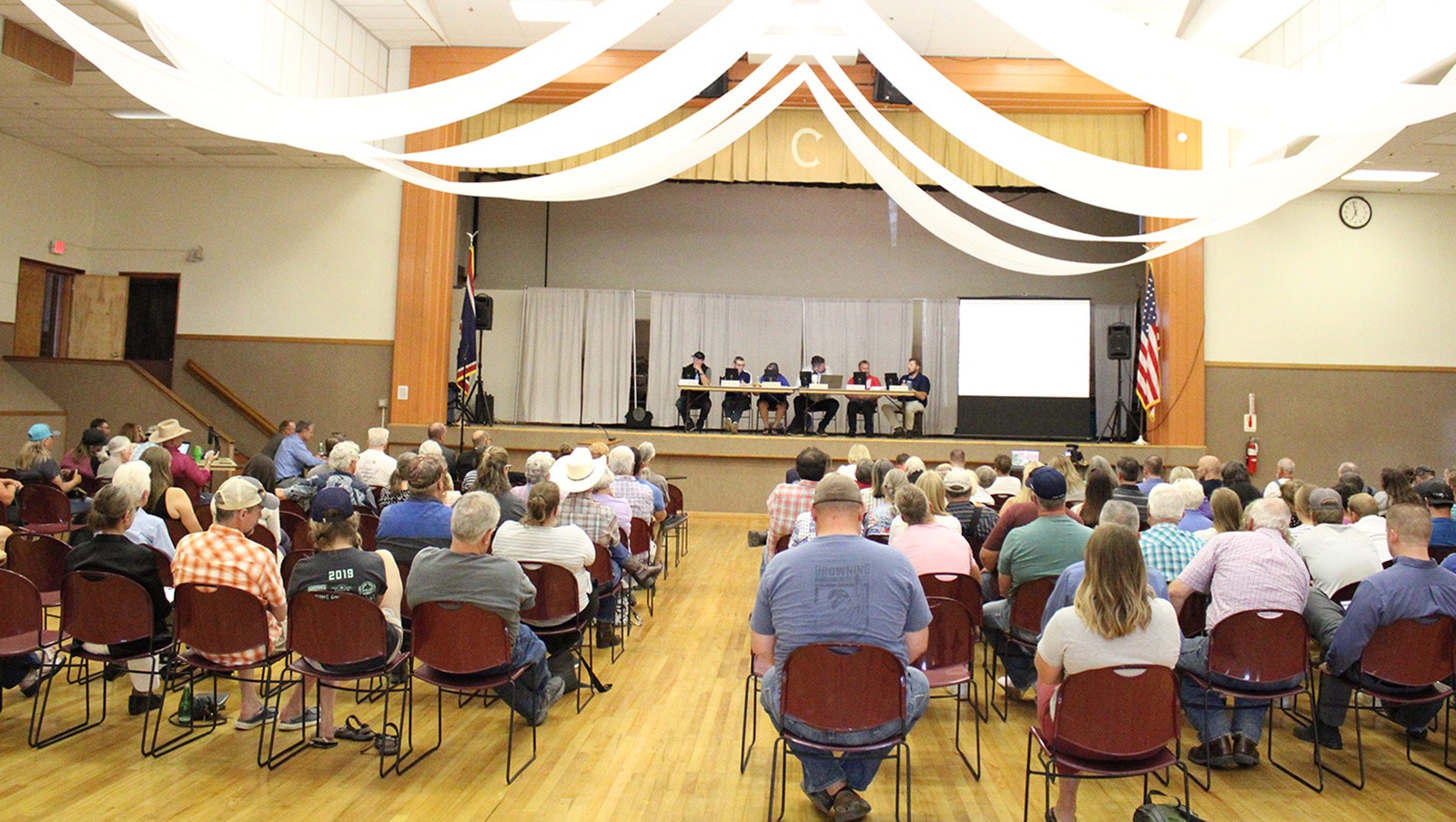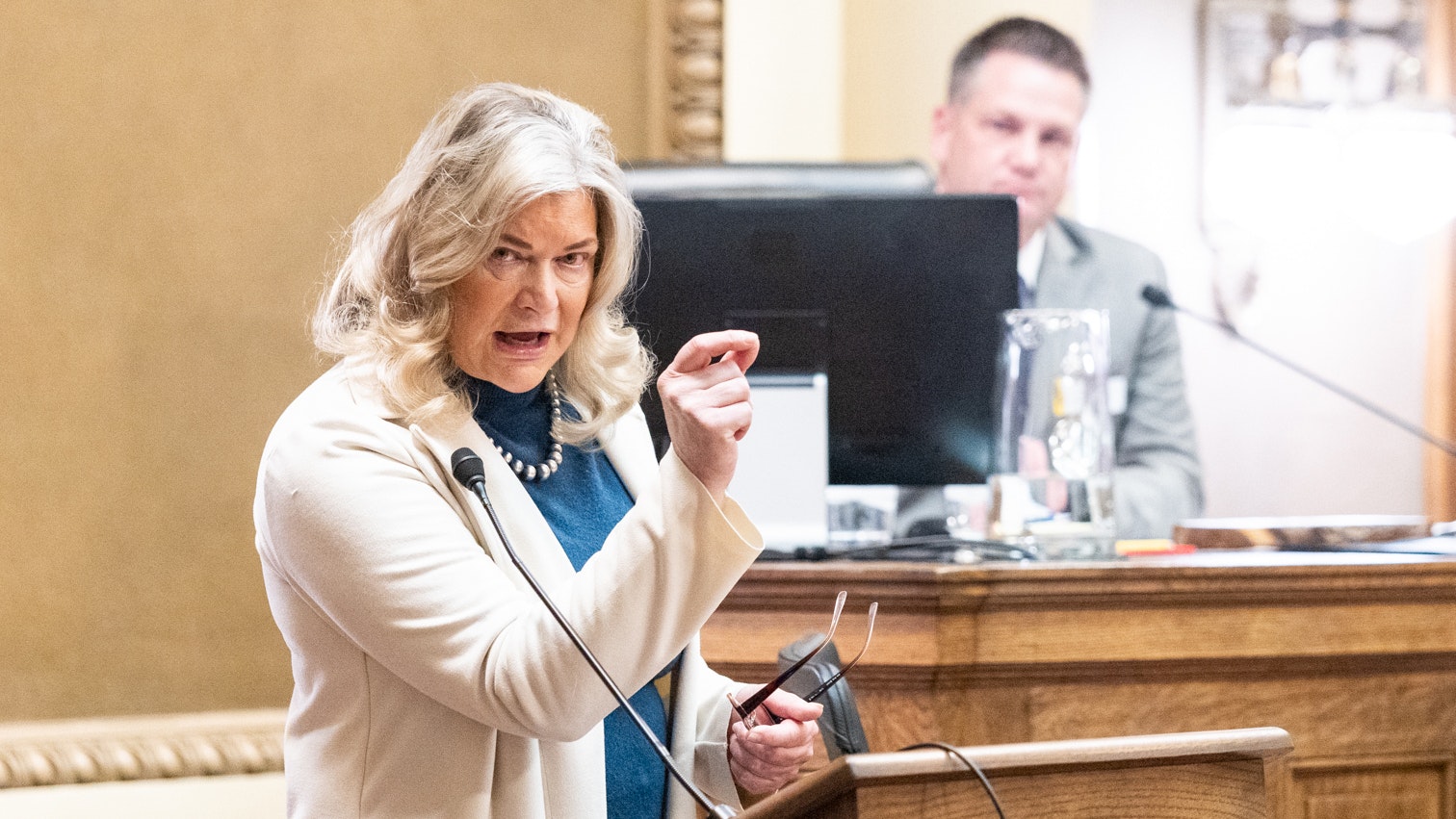CODY — Those expecting a resolution to the ongoing controversy over a Church of Jesus Christ of Latter-day Saints plan to build a temple in Cody didn’t get what they wanted Tuesday night.
The Cody Planning and Zoning Board repeatedly deadlocked and couldn’t accept or reject the temple’s site plan at a special meeting in front of about 100 people at the Cody Auditorium, even when stipulations were placed on a pair of options for the plan.
Votes taken to both reject and approve the site plan were met with split 3-3 votes.
The temple has divided this small northwest Wyoming community over its plans to build a 101-foot building — including a 77-foot steeple — in a residential area and illuminate the building.
Board member Scott Richard summarized the situation succinctly to Cowboy State Daily after the meeting.
“The board is still deeply divided,” he said.
Some Progress?
The one item the board did approve Tuesday night was a conditional use permit (CUP) for the church.
The board had already approved a conditional use permit for the temple in its first meeting on the matter in June, then rescinded that approval at its next meeting.
On Tuesday, the board changed some of the “findings of fact” in the CUP, including most notably a determination that city code stipulates a building’s height in the rural residential zone the temple is planned for cannot exceed 30 feet tall.
The change in this finding reverses an earlier determination made by Cody City Planner Todd Stowell that the steeple would not count toward the building’s maximum height.
This rejection brought some debate between board Chairman Carson Rowley and board member Matt Moss, who have been at odds on a number of aspects of the temple proposal, a divide that was on full display on Tuesday night.
“I believe our city planner is more equipped to making these changes than we are,” Moss said.
Rejecting the determination that the steeple isn’t part of the roof is an important change to what has been the most common point of opposition to the tower, but not the only one.
On Tuesday, a number of stipulations were made regarding the lighting of the temple and when it could be illuminated. Ultimately, none were approved.
No Special Exemption
At the beginning of the meeting, it was announced that the church had rescinded its special exemption application to exceed the 30-foot height limit in the rural residential neighborhood it's being planned for.
“I think one of the biggest concerns people have on several factors is the total height of the building,” Rowley said.
Rowley said having this removed made it difficult for him to also approve the site plan, as it includes lighting that will be located on the steeple.
Sheridan attorney Kendal Hoopes, who is representing the church in its application, said the church could be amenable to lighting restrictions.
Rowley said he did not know when asked if the change to the CUP will require the church to re-submit a special exemption application.
Hoopes declined to comment when asked by Cowboy State Daily why the church rescinded its special exemption application. Stowell said before the meeting he had been informed the church felt it didn’t need an exemption to have the temple height approved.
Now What?
It’s about as clear as mud how the Cody Planning and Zoning Board and the temple application will move forward.
In total, the board took three separate votes that ended in 3-3 ties on Tuesday.
One of the votes to pass the site plan without addressing the lighting restrictions passed 4-2, but it was determined that this was actually a tie vote for the sake of the site plan as there are eight members on the board.
The board did eventually pass a vote to table the site plan for the project, which is arguably the most critical hurdle the church needs to clear.
A few members of the board expressed frustration that local residents, the church and members of city staff haven’t been able to come to any firm agreements or compromises when it comes to the project.
A few supporters of the project like Moss brought up the Religious Land Use and Institutionalized Persons Act of 2000, which protects people, houses of worship and other religious institutions from discrimination in zoning and landmarking laws.
Board member Kim Borer used this federal law as a reason for not showing the church favoritism that she wouldn’t grant to others.
“I think equal is equal. It’s higher than what I would vote for for any type of building,” she said.
Last week, the church filed a petition in Park County District Court asking the court to rule on a particular vote the board earlier took on the temple. This filing was never mentioned during Tuesday’s meeting.
Although the temple hasn’t been rejected by the board, a lack of concrete progress in approving it means the church is no closer to achieving its goal.
“I don’t feel it’s incumbent on this board to keep coming up with ideas to pass on that,” said board member Josh White. “We rule on things that are presented to us.”
Leo Wolfson can be reached at leo@cowboystatedaily.com.

